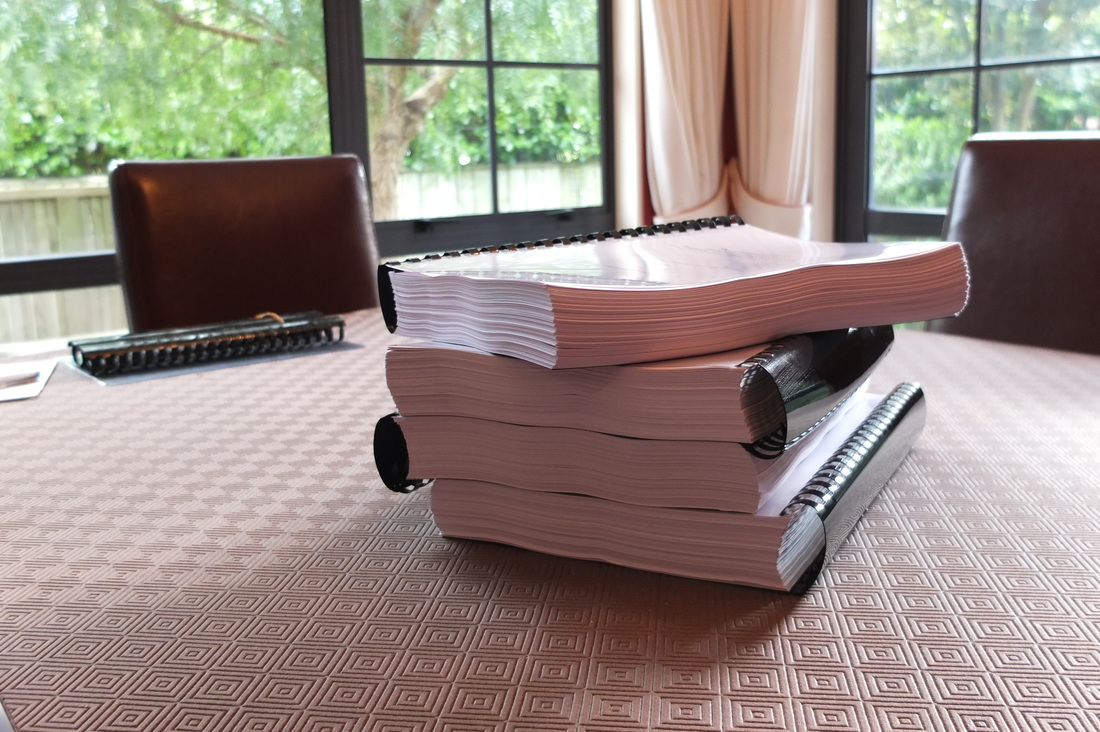|
Several times in the past six weeks, I have been asked to share some thoughts on artificial intelligence and board work; specifically, the impact of emerging AI capabilities on corporate governance and, even, the need for board of directors. The rapid emergence and now widespread awareness of ChatGPT has been a catalyst for many of these enquiries, it seems. I have been fascinated by the unfolding situation, not only because of a longstanding interest (I studied artificial intelligence at university nearly four decades ago), but also the speed by which awareness has spread, and expectations climbed to such stratospheric heights, is unprecedented. Claims have been made that computer-based tools will soon supplant the need for human directors and, with it, board meetings. Some, especially those with jaundiced perceptions of boards, their work and any value they add, have confided this may be a good thing. Others have reserved judgement—for now at least—saying the situation is far too fluid and complex to make anything approaching an informed or reliable decision, much less widespread change. That so many people are questioning 'conventional' corporate governance practices feels a little bit like ground hog day. While I do not claim any particular expertise in the topic of artificial intelligence, I have read widely, asked many questions (of myself and others) and pondered both the purported capability and potential impact (of artificial intelligence) on board work. The departure points for my enquiry has been, as always, definitional. What is artificial intelligence, and what conception of governance does one hold? My responses to these questions are as follows:
So, the proposition to be considered is, "Can a computer replace a social group charged with steering and guidance an organisation in a complex and dynamic environment?" Those people wondering whether AI might be a viable mechanism to support or even replace boards have much to ponder. What is the role of a board of directors in companies? How might the operating context beyond the organisation be assessed? Where does accountability for statutory compliance and overall performance lie? And, to whom should the Chief Executive and management of the company report? If one holds the view that the board is the ultimate decision-making authority within a company (a responsibility delegated by shareholders), and that this (decision-making despite uncertainty and ambiguity) is 'core business', the board has a vital role to play. My early training in computers and technology taught me that computers respond to instruction; they cannot 'think' autonomously or handle ambiguity, and they lack feelings and intuition. They do what they are 'told'; if the 'telling' is poor, the result is likely to be poor: the phrase "garbage in, garbage out" springs to mind. But that was then. Computing power is far greater today than it was even five years ago, much less forty. Has the evolutionary development of computing capability reached the point whereby computers can displace humans? For a large and growing list of tasks and activities, yes, of course. The analysis of data is a relevant case in point. But for many other enquiries, the answers remains a resounding no. How might a computer make sense of the unspoken feelings, intuition and biases of staff, customers and board directors, and reach a credible decision? For this, a much higher order of capability is necessary. And, with that, I stand with those reserving judgement. What of the future? AI may become a viable mechanism to expedite board decision-making, of course. But the likelihood of directors being supplanted any time soon is low (those failing in their duties excepted). For that, artificial general intelligence (AGI) is likely to be necessary, and some moral and ethical questions will need to be resolved as well. If that is achieved, I may take a stronger position. Regardless of whether this muse is sound or not, directors, shareholders, regulators and their various advisors need to be alert, because the situation may change quite quickly.
0 Comments
In a couple of weeks, I'll be in England and Europe, for the third and final time this year. The schedule includes attendance at two conferences, delivery of two keynotes and a bevy of meetings, as follows:
While the schedule is fairly full, some gaps remain for additional meetings (in London). If you would like to meet, please get in touch. I'd be glad to discuss any aspect of boards, corporate governance or effective board practice; explore a research idea; or respond to (future) speaking or advisory enquiries.
Further to my recent announcement, the full findings of my doctoral research are now available. You can read the abstract here, or download the full thesis (all 359 pages!): Understanding corporate governance, strategic management and firm performance: As evidenced from the boardroom (5.2MB, PDF) The research is informed by a longitudinal multiple-case study of two large high growth companies. Data was collected from direct observations of boards in session, and multiple secondary and tertiary sources, creating a rich and rare data resource. The analysis revealed numerous insights, leading to a mechanism-based model of the governance–performance relationship and an explanation of how boards can exert influence beyond the boardroom including firm performance. If you would like to discuss the research (or raise a challenge), ask a question or explore how your board might benefit from the findings, please get in touch. I'd be glad to hear from you.
Longstanding readers of Musings may recall that I embarked on a journey in 2012, to try to understand whether boards of directors are able to influence the performance of the company they govern and, if so, how. The journey has been long and arduous, with many challenges and setbacks along the way to be overcome. That journey, my quest to answer a most difficult question, has reached an important milestone, the awarding of a doctorate degree. I'm thrilled that the examination panel has seen fit to recognise the groundbreaking research, a longitudinal study of the boards of two large high-growth companies. The panel's decision confirms the validation provided by the academic community late last year. Here is the doctoral citation: Boards of directors have been the subject of considerable research attention in recent decades. While a large body of knowledge has been published, substantive evidence to explain how boards actually exert influence over firm performance from the boardroom has remained elusive. Crow conducted a longitudinal multiple-case study of two large New Zealand-based high-growth companies. Data was collected from direct observations of boards in session, and multiple secondary and tertiary sources, creating a rich and rare data source. The analysis revealed numerous insights, leading to a mechanism-based model of the governance–performance relationship and an explanation of how boards can exert influence beyond the boardroom including on firm performance. Copies of the abstract and full thesis are now available. If you want to ask a question, discuss some aspect the research or understand the implications for board effectiveness, please get in touch.
One of the delights of my high school years—close to forty years ago now—was to run. Mostly, I ran 1500m on the track and cross-country events. While I did experience the winning tape a few times, most events saw me finish off the podium. I was a capable but not great runner. Perhaps it was the genes, or technique, or perhaps I didn't prepare sufficiently well. My lingering memory from those enjoyable days was a piece of advice offered by a quietly spoken coach, at a regional event, "Leave a little bit in the tank, you may need it at end." To that point, I had run hard from the gun, out in front quietly hoping to have enough energy to keep going until the end. To hold something back seemed counter-intuitive. What if others ran ahead? Could they be caught? I was torn, but took the coach's advice anyway. Three runners jostled for position for the first three laps of the race. With the coach's words still front of mind, I ran with the group, even though I could have gone faster. As the pace increased on the last lap, I held position. Then, part-way down the finishing straight I gave it everything—slowly pulling ahead to reach the tape first! That little bit left in the tank from earlier in the race had fuelled the final dash to the line. The parallels with my doctoral research journey—to discover how boards can influence business performance—are clear. The oral examination is just ten days away now. The journey to date has been arduous yet fulfilling, and not without its challenges and setbacks as you might expect. With the oral examination now in sight, should I go all out or hold a steady pace? Will the oral signal the finishing tape has been reached or will the examiners require emendations? Regardless of the examiner's decision, the goal is to finish well. Thus, the next ten days are being spent re-reading material, pondering options and working through scenarios—all with the wisdom of my coach of old ringing in my ears.
Several weeks ago I reported, with a sense of frustration, the seemingly slow progress towards the examination of my doctoral research. The lack of any visible progress since the beginning of June has engendered a sensation not unlike a phony war. However, that changed late last week. Some sixteen weeks after the thesis was submitted for examination, a date for the viva voce has been set. I have been called to meet the examination panel on 22 October 2015. That a date has been set is good news: I now have a target to work towards. A meeting has been scheduled with the panel convenor (1 October) to understand the process and, importantly, the expectations of the examiners. From there, preparations will start in earnest. The most pressing priority is to re-read the thesis from cover to cover—all 341 pages of it. It'll be interesting to see how much I can remember, given I haven't opened the document since the beginning of June!
Over the last month or so, I've begun to receive questions—several per week—about my doctoral research. Most have been variations on these themes:
That people beyond close friends and associates might be interested in the status of the research and in reading the outputs has been gratifying. Sadly, process delays have impeded the provision of affirmative responses for the time being. The background and current situation is as follows: On the examination: I had hoped to have some news by now, as eleven weeks has passed since the dissertation was submitted for examination (oral examinations normally occur about 8–12 weeks after submission). However, there was a problem with the examiner panel and some seven weeks elapsed before it was resolved. I've now been told to expect to expect the oral examination during the week of 19 October—another nine weeks away! Thankfully, my head supervisor is trying to accelerate the process, and I've got other things to be going on with. On the request for a copy of the full dissertation: A copy of the dissertation (The influence of boards on business performance: Evidence from inside the boardroom) will be posted here after the examination and emendation process is complete. A copy will also be available via academic search engines in due course. In addition, I plan to consolidate the main research findings into a slim (but readable, with practical implications) volume. If you would like to be added to a mailing list to receive a copy when it is available, please let me know. Notwithstanding the rather annoying delay, feedback from several people who know about the research findings suggests it will be worth the wait, both as a useful guide for boards and as a basis for future research. However, such claims are preemptive and presumptive in my view: the dissertation needs to emerge from the examination process first! My heartfelt thanks for your interest in the research, and your patience while the examination process runs its course. My hope is that your interest and patience will be satisfied soon!
May 31 is an important day on our family calendar: This year doubly so. It's our daughter's birthday (our youngest reached the ripe old age of 21 this year). We hosted a luncheon for her and several of her friends. Gifts were given and stories were told. We had a great time together. The 'doubly so' part is that I finished writing up my doctoral thesis! Some three-and-a-quarter years after setting out (to discover how boards influence business performance), the main output of the doctoral research process, the thesis dissertation, is complete and ready to be examined. Four copies of the 336-page tome have been printed and bound, and the associated 'submission' paperwork has been signed. Will the thesis dissertation be good enough? I hope so, but only the examiners can answer that question. Where to from here? Today I will rest, to start dissipating the intensity of the final ten days of the write-up and to 'change gear' (from writing to meeting people). I am en route to London, ahead of three exciting corporate governance conferences—two of which I have the honour of addressing. Tomorrow I will start preparing presentations and thinking about the future. Thank you to everyone who has provided support and offered encouragement in recent weeks. The focus on the write-up process has been total. I appreciate your comments—deeply.
Just over three years after first setting out, I arrived at a small but significant milestone on my doctoral research today. The candidate final draft of the thesis (a 'mere' 336 pages) was sent to my supervisors for their detailed review. I'm hoping that, subject to relatively minor edits and changes, this draft will be submitted for examination. The personal satisfaction of arriving at this point is palpable: Some of the numbers: read over 1000 articles; listened to over 6GB of audio recordings of board meetings and interviews; read and analysed over 900 printed pages of documentation; untold hours spent wrestling with candidate theories; and, written over 83,000 words (this is what remains, I've probably written and scrapped at least 20,000 more than this). The going has been tough lately, because writing up a thesis, in an academic style is not my forte. A couple of months ago, I expressed some frustration. Today, the sun shone again, and it was good. Tomorrow will be my second day off in 2015. After a steady diet of 14 hour days, my wife is not sure what I'll do with myself. I've got a fair idea: it'll probably involve a Colnago, and I doubt there will be a word processor in sight! Thank you to everyone who has provided support to this point. The journey is not over yet, but I'm hopeful that the end is not too far away now.
 I've spent the last six weeks working hard (seven days a week), towards my goal of completing the doctoral research thesis, in readiness for a final check by my supervisors before it is submitted for examination. That process has involved long hours of focussed concentration and a fair dose of pedantry. Those of you who have completed doctoral research will know exactly what I mean, no doubt. Progress has been steady, but the pointy end of the process is taking longer than expected; more so following the arrival yesterday of some feedback from one of my supervisors. The feedback received over the past few weeks has been positive and encouraging. However, the latest feedback has introduced some unexpected obstacles to be dealt with. It's frustrating to say the least. While it would have been nice for my supervisor to have signalled the issues to be dealt with earlier than this, the bigger picture—of providing an explanation of how boards can influence business performance—remains my guiding motivation. If the unsolicited feedback received from people around the world is any indication, many boards and business leaders are eagerly waiting to read and understand the recommendations. That's a huge responsibility. Consequently, I choose to remain focussed, even though the goal is now a little further away than previously thought. I'll keep you informed.
|
SearchMusingsThoughts on corporate governance, strategy and boardcraft; our place in the world; and other topics that catch my attention. Categories
All
Archives
May 2024
|
|
Dr. Peter Crow, CMInstD
|
© Copyright 2001-2024 | Terms of use & privacy
|







